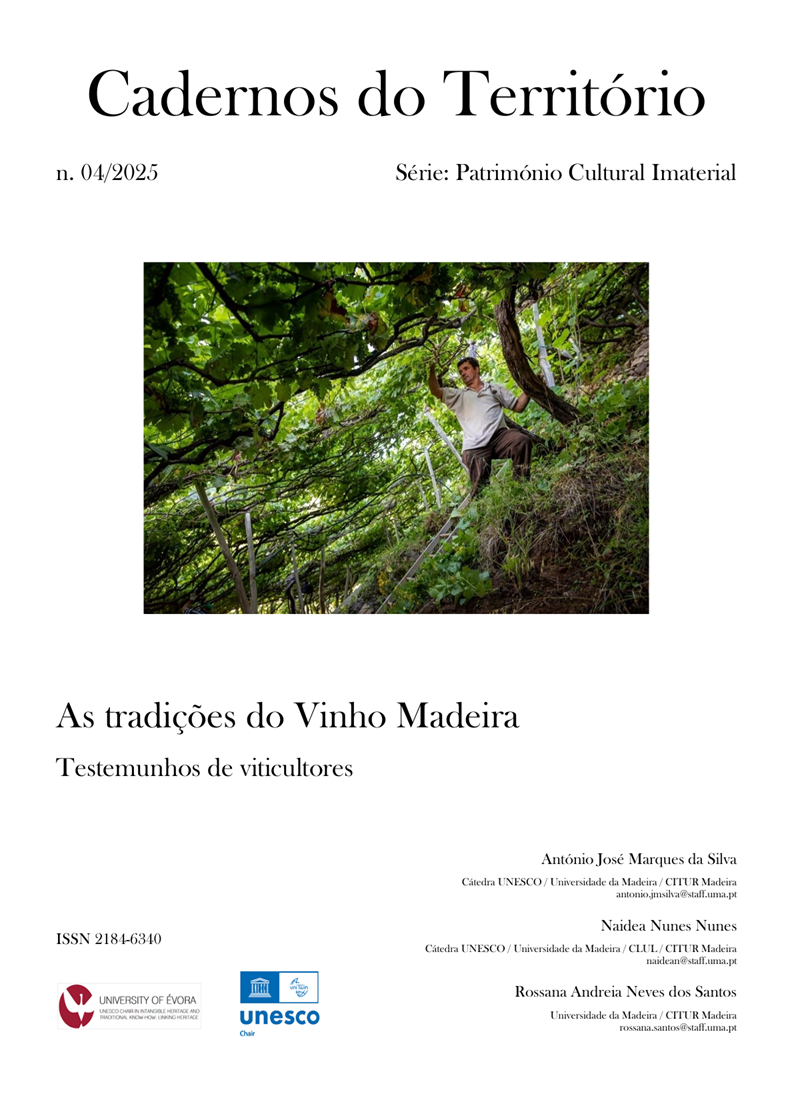
It is with great pleasure that we announce the publication of the book “The Traditions of Madeira Wine: Testimonies from Vinegrowers” in the Cadernos do Território (No. 04/2025), a series dedicated to Intangible Cultural Heritage, promoted by the UNESCO Chair in Intangible Cultural Heritage and Traditional Know-How: Linking Heritage and Territory at the University of Évora.
Authored by António José Marques da Silva, Naidea Nunes Nunes, and Rossana Andreia Neves dos Santos, this work gathers valuable testimonies from Madeira’s winegrowers, offering a unique and deeply rooted perspective on the practices, knowledge, and ways of life associated with vineyard culture and Madeira wine production.
The introduction places these testimonies within the framework of the UNESCO Convention for the Safeguarding of the Intangible Cultural Heritage (2003), emphasising the importance of giving voice to knowledge holders — in this case, the vinegrowers — as a means of recognising and preserving threatened practices. It is precisely the interviewees themselves who, in their own words, identify the main challenges to the continuation of these traditions: the ageing agricultural population, real estate pressure on vineyard lands, difficulties in attracting younger generations, and the growing cultural undervaluation of rural ways of life. By adopting an oral history approach, the publication provides a living and urgent record of a heritage at risk, reaffirming the importance of its safeguarding in the contemporary context.
The publication represents a highly relevant contribution to the nomination of Madeira Wine Traditions to the National Inventory of Intangible Cultural Heritage (PCI), as it documents and gives voice to the protagonists of this living heritage. By recognising the central role of vinegrowers as bearers of knowledge passed down through generations, the article strengthens the human, identity, and territorial dimensions of this heritage.
This work is part of a broader effort to valorise and safeguard this legacy, at a time when the phenomenon of vineyard abandonment has been accelerating. While these practices remain a distinctive element of the island’s cultural landscape and a symbol of its collective memory, they face increasing fragility and risk of disappearance — making their recognition and preservation all the more urgent.
We invite you to read the full article via the UNESCO Chair’s portal:
Territory Notebooks No. 04/2025 – Intangible Cultural Heritage Series